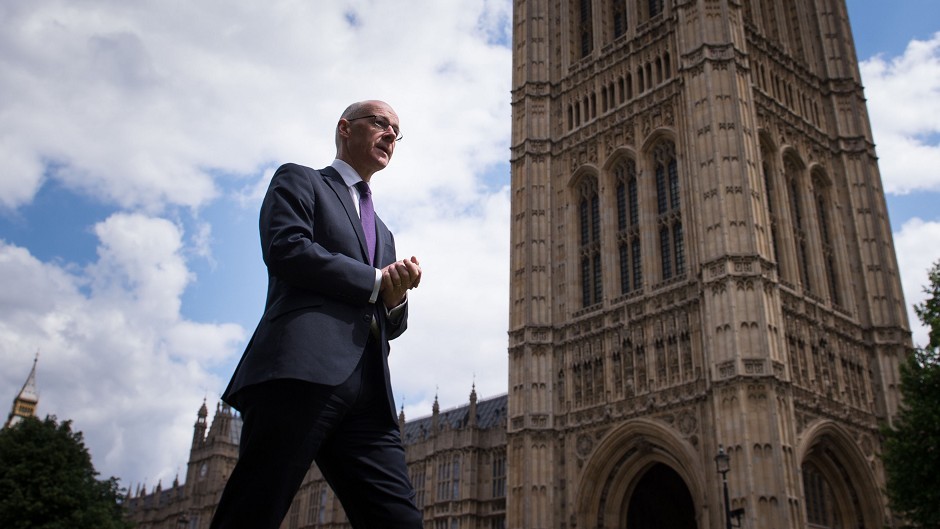An influential Lords committee has called for the legislation devolving further powers to Holyrood to be halted amid accusations the UK Government has acted with “undue haste”.
The Scotland Bill has passed the House of Commons and is due to be considered in the upper chamber next week.
But the Lords economic affairs committee has warned the process must be held up until the accompanying fiscal framework – currently being negotiated in private by the Edinburgh and Westminster governments – is published.
It also dismissed the Barnett Formula as an unsustainable method of calculating public spending levels in Scotland, Wales and Northern Ireland, recommending a “modernised and needs-based” replacement.
And it cautioned that devolving “unprecedented” powers to set tax rates and control of almost all income tax revenue could risk “weakening” the connection between Scottish voters and the UK Government.
Committee chairman Labour peer Lord Hollick said it could not be right that parliament was being asked to pass the legislation without seeing the financial arrangements underpinning the new era of devolution.
He added: “This whole process has been done with undue haste and not enough attention to detail or principles.
“We are calling for a pause until these key issues are addressed. Devolution and the future of the UK are too important for us to legislate in haste and risk repenting at leisure.
“That would at least allow peers the opportunity that MPs were denied of scrutinising and amending this important legislation as informed participants.”
Responding to the committee’s report – entitled A Fracturing Union? – shadow Scottish secretary Labour’s Ian Murray agreed there needed to be greater transparency.
The Edinburgh South MP welcomed the call for the bill to be frozen pending publication of the framework.
He said: “We know it’s hugely complex. It would be ludicrous to suggest otherwise, but we need both parties to get round the table and negotiate it out.
“I have been calling for transparency for months. This is a deal which is being negotiated in secret.
“They can’t carry on with two governments negotiating something in secret and then blaming each other if it goes wrong.”
But former Scottish secretary Alistair Carmichael said a pause would create “unnecessary delay” which would “add fuel to the grievance machine that is the SNP”.
The Liberal Democrat northern isles MP added: “There is no link between the framework and the bill that justifies a delay.”
Deputy First Minister John Swinney promised the Scottish Government would “never sell the people of Scotland short”.
He added: “We have already committed to giving MSPs the opportunity to scrutinise the detail of the fiscal framework.
“Of course, the key vote that matters will not be in the unelected House of Lords – it will be in the Scottish Parliament.”
The finance secretary also said the SNP would only support a legislative consent motion on the bill if the fiscal framework was “satisfactory and fair”.
And he rejected the proposal to remove the Barnett Formula – a “key component” of the Vow and Smith Commission – as “unacceptable”.
A UK Government spokesman described the report as an “important contribution to the debate on devolution”.
He added: “Fiscal framework discussions have been constructive and focused on securing a fair and workable fiscal framework which delivers the cross-party Smith Agreement.
“Both governments have agreed not to comment until an agreement is reached.
“Both governments aim to complete the framework as soon as possible in order to give respective parliaments time for due consideration.”
